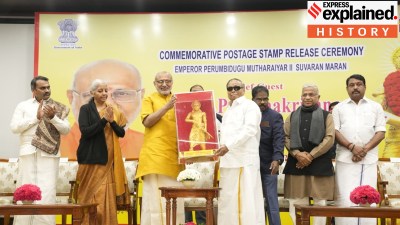Assets under RTI,need to live by standards we set: HC rules to SC
Judging is not a job,it is a way of life. Whenever I enter the courtroom,I do so with the deep sense that,as I sit at trial...
Judging is not a job,it is a way of life. Whenever I enter the courtroom,I do so with the deep sense that,as I sit at trial,I stand on trial, Justice S Ravindra Bhatt of the Delhi High Court said on Wednesday, ruling that the Chief Justice of India was a public authority obliged to disclose information on judges declared assets under the RTI.
Describing his humbling experience as a judge who agrees that the little man can no longer be kept in the dark about judges assets,Bhatt said in the verdict: It would be highly anomalous to say that in exercise of the legitimate jurisdiction to impact peoples lives,property,liberties and individual freedoms,judges have no obligation to disclose their personal assets to someone or authority.
The judge,the verdict said,was a casual law-maker,just filling in the gaps.
However,the court said,the Right to Information Act does not put an obligation on a judge to disclose the assets of family members. The contents of the declaration will be deemed as personal information unless its disclosure proves to be of larger public interest.
Justice Bhatt was giving his judgment on a petition filed by the Supreme Court against a Full Bench decision of the Central Information Commission (CIC),asking the Supreme Court to disclose if judges were declaring their assets as per the tenets of a 1997 resolution.
All power judicial power being no exception is held accountable in a modern constitution. Holders of power too are expected to live by standards they set,interpret,or enforce,at least to the extent their office demands, Justice Bhatt said.
The verdict strikes a blow at the Supreme Courts stand that asset declaration by judges has nothing to do with their duties as judges. The apex court contended that the duty to declare assets as per the 1997 resolution was a mere moral duty and not a legal obligation inviting sanctions in case of non-compliance.
The apex court had argued that declaration of assets was purely voluntary and confidential,based on the bond of trust between the Chief Justices and his fellow judges.
Even as Justice Bhatt refrained from passing a comment on the recent thaw in the apex courts stand,in deciding to put up details of judges assets on the Supreme Courts official website,he suggested that the CJI should appoint a separate Central Public Information Officer to deal with the issue.
The resolution of 1997 is meant to be adhered to; the question of non-adherence should not even be debated, Justice Bhatt said,adding that in the case of the higher judiciary,mere moral declaration is expected to be enough of a deterrent to attract compliance.
The judgment did not evince much apprehension over the lack of clarity so far on the procedure to make judges assets public and to tackle security problems in case of misuse of such disclosures.
These are not insurmountable obstacles; the CJI,if he deems it appropriate,may in consultation with the Supreme Court judges evolve uniform standards,nature of information,relevant formats and the periodicity of such declarations, Justice Bhatt said.
He effectively countered the efforts of the Supreme Court to distance the CJI from the apex court Registry. Then Solicitor General of India (and now Attorney General) G E Vahanvati,who represented the Supreme Court,had argued that the office of the CJI was multi-faceted and had varied roles other than being the Chief Justice of the Supreme Court.
He is,unlike the United States (where the Chief Justice is the Chief Justice of the US Supreme Court),the Chief Justice of India, Vahanavati had submitted in his argument for exemption of the CJI under the RTI.
Dismissing this argument,Justice Bhatt said: What this court cannot ignore,regardless of the CJI,is that they are directly relatable to his holding the office of the CJI,and the head of the Supreme Court. He also questioned why the CJI should consider himself exempt from the RTI when the President of India is covered by the transparency law.
The existence of a fiduciary bond or a junior and senior relationship between the apex court judges and the CJI was mere fiction,Justice Bhatt said. Judges of the Supreme Court hold independent office,there is no hierarchy, the judgment said.
- 01
- 02
- 03
- 04
- 05































